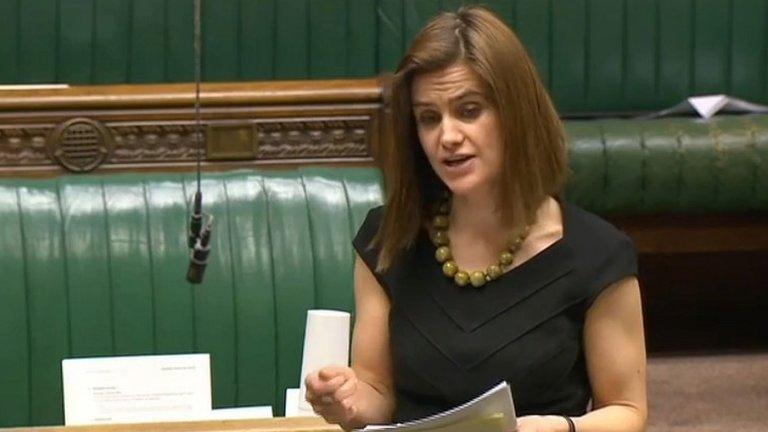The fear that MPs rarely talk about
- Published
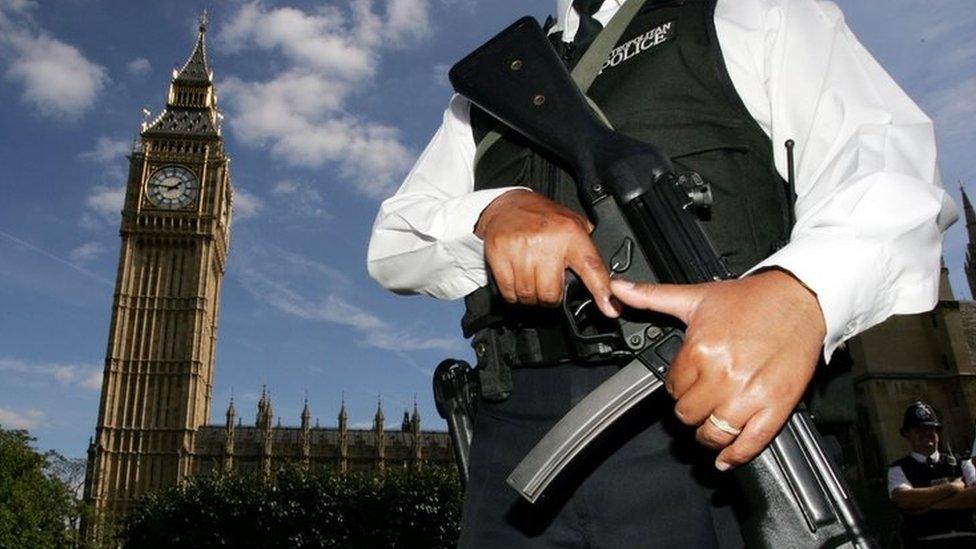
The phrase "out of touch political elite" trips too easily from certain commentariat keyboards.
It's a kind of all-purpose, good-for-all-occasions criticism of any politician. "They don't exactly replicate my views? Out of touch…."
But I wonder how many of the glib trotters-out of that phrase spend hours sitting in damp church halls or down-at-heel municipal offices, trying to deal with benefits problems, housing problems, issues with the NHS and the myriad of other questions people bring to their MPs.
Plenty of people have pointed out that the constituency surgery is a vital link between Parliament and People, rubbing the nose of our political leaders in the gritty realities of ordinary lives - but it is not the only one.
Most MPs meet constituents while shopping or on the school run, as well as at formal pre-arranged political events.
And it is worth underlining just how directly the information they glean, and the patterns they see, can feed into the law-making process.
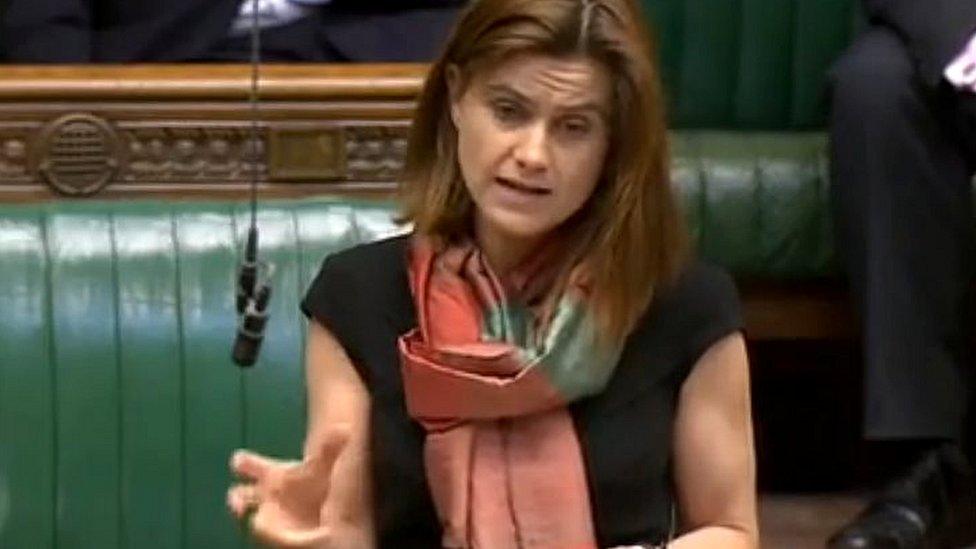
Jo Cox entered Parliament in 2015
When the same problem, with benefits or special educational needs, or housing or whatever surfaces again and again, MPs are not shy of relaying that news to ministers - and threatening to amend bills or budgets to deal with it.
MPs may be the first to spot a new cluster of hospital deaths or an emerging issue like the problem of sixtysomethings who can no longer cope with the care needs of their ninetysomething parents - flagged up to me recently by one MP as the big new problem surfacing at his surgeries.
Party loyalties
But all these interactions would work rather less well if they took place in the shadow of some hulking bodyguard.
All this brings me to the point that the current generation of MPs are harder working and more responsive to their constituents than ever before - to the point where constituency demands increasingly trump party loyalties, which, in turn, explains the rising Commons rebellion rate in the last two Parliaments.
Look at the twitter feed of almost any MP and you will see a long list of events and meetings attended, schools visited, issues raised.
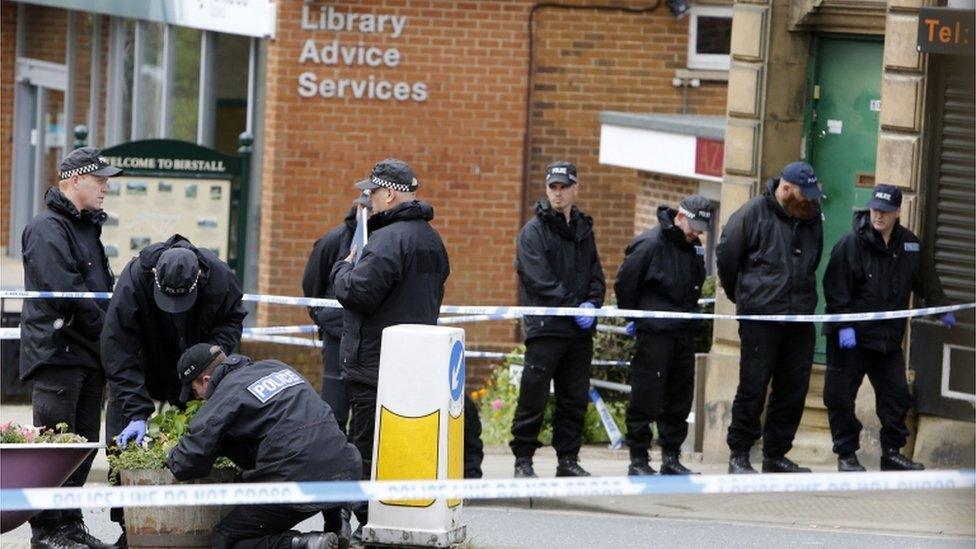
Mrs Cox, a mother of two, was attacked outside her constituency surgery in Birstall
The days when MPs could get by with a state visit to their constituencies every few months are decades past - ended by the emergence of community politics and a more demanding and less deferential electorate.
Go into Parliament and you will see an impressive level of activism.
Last week I was reporting on the Investigatory Powers Bill - the ministers and Opposition front benchers had negotiated hard on issues of detail - but so had backbenchers like Stephen McPartland, who put down 60 amendments to press particular issues (I mention him because I happened to interview him last week).
Angry incidents
He's just one example of the increasing trend for backbench MPs to act in a way that would have been branded impertinent or even disloyal, just a decade ago.
By any standard, today's MPs are both more independent and more active than previous generations.
But there's a side of an MP's life that they don't talk about very much; fear.
One MP for a leafy south-eastern constituency told me yesterday that he always felt a surge of relief when he passed through the armed police cordon that protects Westminster.

Stephen Timms was attacked in his constituency office
While events like this week's tragedy or the attack on Stephen Timms, or the murder of Andrew Pennington, an aide to former MP Nigel Jones, are rare, they are peaks in a UK-wide drumbeat of angry incidents.
Every MP has a tale or two about agitated constituents ranting threats and kicking furniture, and every time, they wonder how far it will go.
Is that vaguely threatening comment on Twitter or Facebook the start of something more sinister?
Has that threatening visitor to the surgery got the anger out of their system, or will they come back, perhaps with a knife?
A former Parliamentary assistant has described how MPs are a "lightning rod" for constituents' anger and frustration, exposing them and their staff to risk.
Panic buttons
Katie Pruszynski, a former assistant to the Norwich North MP Chloe Smith, said of MPs: "I think quite reasonably and understandably they are a lightning rod for people's frustration, their anger and sometimes quite substantial feelings of despair about their own personal situation.... almost every office of an MP could give you a story about abusive emails or phone calls coming into the office.
"For me, the phone rang one day and I picked up the phone and it was a man who was from a guess I would say probably quite disturbed, screaming, screaming down the phone that he was coming for me and that he was going to eat me like a wolf."
Many MPs have established protocols to keep themselves and their staff safe and installed panic buttons and CCTV.
But now they're wondering if their precautions are enough.
One MP told me how a WhatsApp group, set up by pro-Remain Parliamentarians to coordinate their activities in the last week of the referendum campaign, had turned into an online support group after the death of Jo Cox.
My contact had some sympathy with the thought that came through in those discussions, that just as with the IRA murders of MPs, democracy must carry on, and MPs should not change their way of life - before adding "but I don't want to be next."
Another had changed his behaviour after an unpleasant encounter with a dissatisfied constituent who started threatening him and his family.
A series of incidents forced him to change his behaviour.
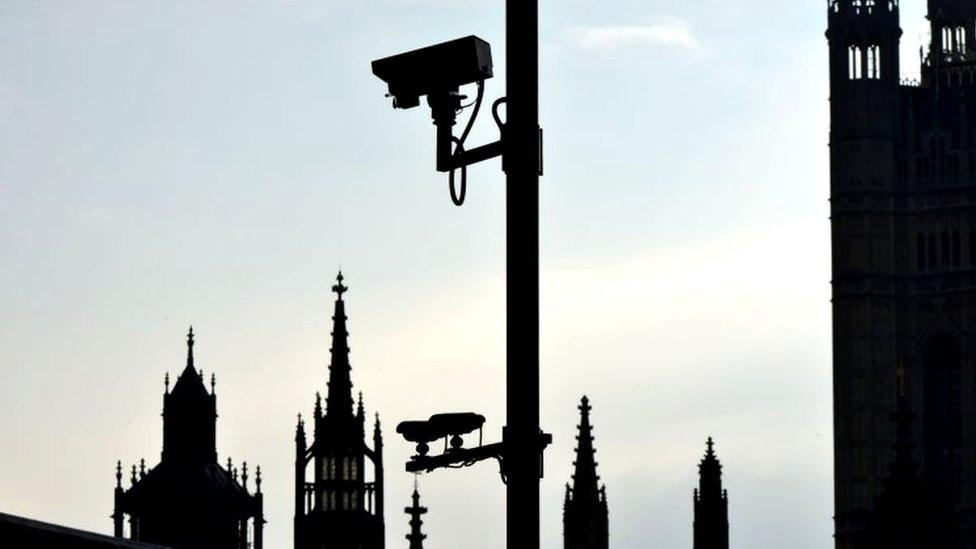
He stopped advertising street surgeries and other events in advance, he took careful precautions to ensure his office always knew his whereabouts as he toured his constituency, he found himself scanning the crowds in the streets, alert for hostile faces. He installed all kinds of technical security measures.
That particular storm has passed - but he has another three or four constituents on his books who, he fears, could turn just as nasty.
Internet trolls
This is the group regarded as most likely to pose a threat; someone who, for whatever reason, has had some dealings with an MP, often with some unreal grievance, and is angry at the result - they can become political stalkers.
"I have three or four - and any one of them could kick off; you just don't know," said the MP.
To be sure, not all MPs feel they are under this level of threat - my contact thought he was perhaps 18 months ahead of most of his colleagues.

Intertwined in all this is the focussing effect of social media - both an indispensable tool for the modern Parliamentarian and a weapon that can be turned against them.
Sometimes this is just a continuation of a centuries old British tradition of political satire which holds that our politicians are all the better for a bit of ribald taking-down - but sometimes, some MPs fear, getting away with really vile abuse online, with no consequences at all, does encourage a tiny minority of internet trolls to take their behaviour into the real world.
The venom directed against women politicians who commit the terrible crime of existing and voicing opinions is horrible to read.
The hot new jargon term in Westminster is "Twexit" - the decision to leave Twitter, to get away from the endless abuse.
But again that means a retreat has been sounded.
Steven Kinnock, who shared his Westminster office with Jo Cox, thought it was time for people to review their behaviour and language: "Where we can look more at trying to address those issues is around the mood music, it's around the way the media lays into politicians.
"I think sometimes it goes over the mark ... and I think sometimes the way politicians react to each other and of course the way that gets into the melting pot of social media.....I think we need to have a conversation about the tone of our politics and we need to reflect on that, in the light of what's happened to Jo."
And when next week's Commons tributes are delivered and politics as usual resumes, that is the debate many in Westminster want to have.
- Published17 June 2016
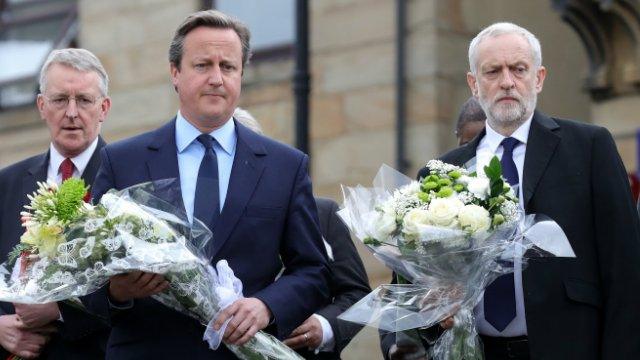
- Published17 June 2016
